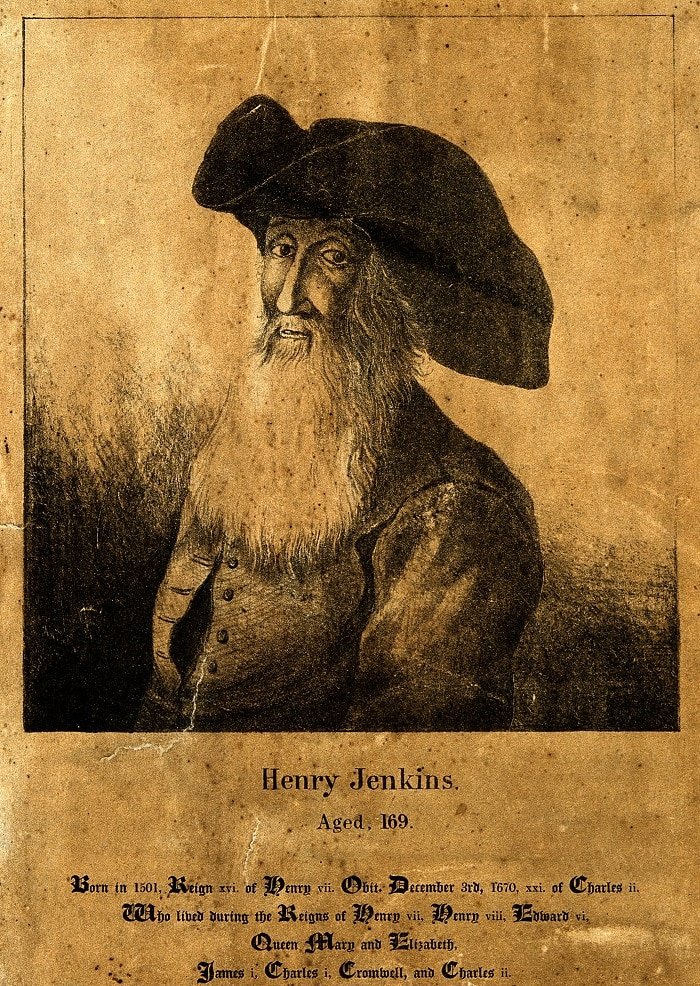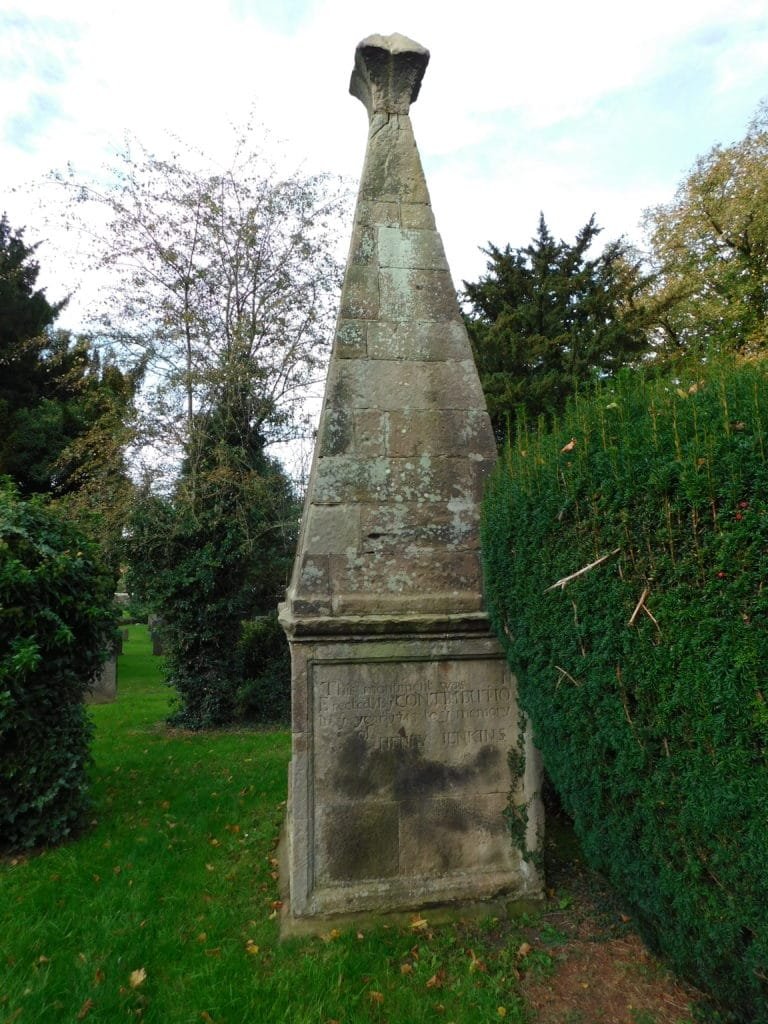When walking the Coast to Coast, the stretch from Richmond to Ingleby Cross is long (very long) and not the most picturesque day that you will experience. Expect a lot of fields and flat country roads. And while some people split it over two days, others prefer to just get it over and done with. Whatever you decide, there is one fascinating little stop along the way where you will learn the story of Henry Jenkins.
Bolton-on-Swale is a North Yorkshire village of fewer than 100 people. At the heart of the village, and right on the route of the Coast to Coast, you will find St. Mary’s Church, a charming building dating back to the 14th century. It’s worth stopping here for several reasons, not least of which are the bathroom and the wonderful assortment of drinks and snacks available for walkers. Please leave a donation in return for whatever you take.

By Wellcome Collection gallery
It is also worth browsing the inside of St. Mary’s as you take a quick refreshment break. As well as the beautiful stained-glass window, there is one memorial of particular interest. On your way into the church, you may have noticed a rather tall monument among the gravestones. That and the plaque inside the church pay tribute to an extraordinary man.
Henry Jenkins was buried in Bolton-on-Swale in December, 1670. He was, at the time of his death, a pauper and had no headstone to speak of. The parish record lists as a burial on December 9, 1670: “Henry Jenkins, a very aged and poore man of Ellerton”. Both the memorial obelisk in the churchyard and the plaque inside the church were placed there in 1743. But why would anyone pay such a tribute? Because Henry Jenkins was quite old. In fact, he is thought to have lived to the incredibly ripe old age of 169.
 According to local history, Jenkins was born in 1501. No parish registers were kept before 1538, and so we cannot verify this other than with Jenkins’ own stories. Many years later, he would tell of his memories carrying arrows in the Battle of Flodden Fields in 1513. Later, he worked as a butler at Hornby Castle and as a salmon fisherman. He ended his days begging for alms. Although unable to read or write, he possessed a remarkable memory, and was able to provide great detail of his life.
According to local history, Jenkins was born in 1501. No parish registers were kept before 1538, and so we cannot verify this other than with Jenkins’ own stories. Many years later, he would tell of his memories carrying arrows in the Battle of Flodden Fields in 1513. Later, he worked as a butler at Hornby Castle and as a salmon fisherman. He ended his days begging for alms. Although unable to read or write, he possessed a remarkable memory, and was able to provide great detail of his life.
One historian reportedly traveled to seek him out and came across an elderly man who turned out to be Jenkins’ grandson. When he finally met Henry Jenkins himself, the historian noted that he looked much more “hale and hearty” than his descendant!
In 1859, John Bell published “Evidences of the Great Age of Henry Jenkins” in which he wrote:
This Henry Jenkins, in the last century of his life, was a fisherman, and used to wade in the streams; his diet was coarse and sour; but towards the latter end of his days, he begged up and down; he has sworn in Chancery and other courts to above 140 years’ memory, and was often at the Assizes in York.
He must have remained fairly spry since Bell also notes he regularly swam even after the age of 100.
We will never know if Henry Jenkins’ claims to remember Henry VIII and of having carried arrows into battle for the archers were true or if he was simply a masterful storyteller. However, a search among the records at Hornby Castle shows his name on the staff lists. Other villagers, when asked, said that for as long as they could remember, Henry Jenkins had been an old man. If he was indeed 169 at the time of his death, Henry Jenkins was born during the reign of Henry VII and died during the reign of Charles II.
So if you find yourself in the vicinity of Bolton-on-Swale, take a half hour to visit St. Mary’s Church and ponder the incredible life of the famed Henry Jenkins.



The first time I read about Henry Jenkins was in Edith Sitwell’s wonderful book “The English Eccentrics” and I decided to see Bolton-on-Swale and the things connected with Henry Jenkins. It’s not just around the corner when you live in Germany.
But finally I succeded when travelling around some northern parts of the UK with a friend of mine.
The place is well worth a visit. Take an hour or two. Have a picknick on the churchground. Leet your phantasy flow and try to imagine the times when such remarkable people lived their simple lives. “Blush not, marble, to rescue from oblivion the memory of Henry Jenkins.” Find these words inside the church.